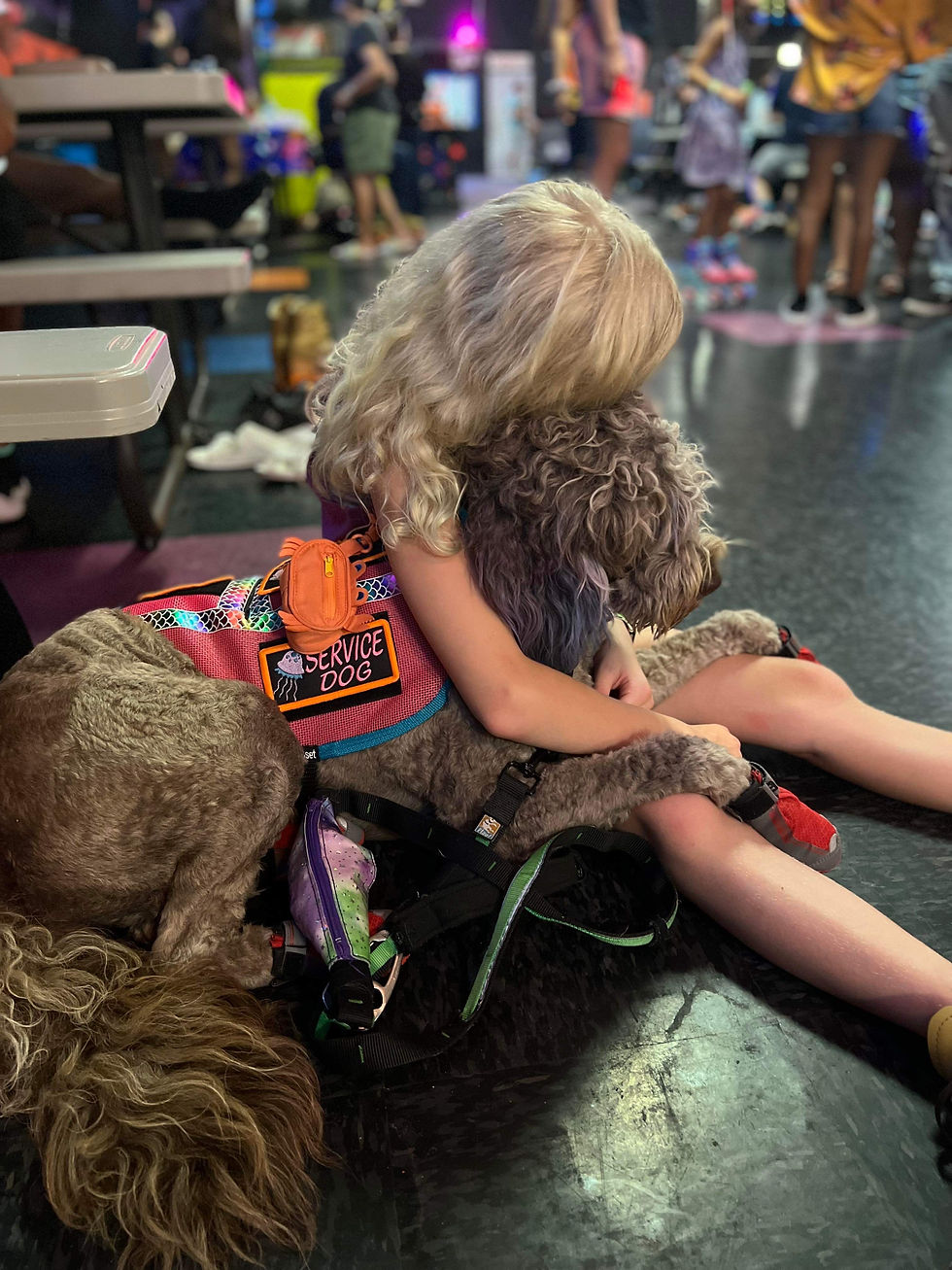Medical alert service dogs play a crucial role in assisting individuals with various medical conditions. These specially trained dogs possess the unique ability to detect and respond to specific medical alerts, providing invaluable support to their handlers. One such category of medical alert dogs is those trained to assist individuals with conditions like diabetes, epilepsy, or severe allergies. Let's explore the rigorous training process that goes into developing a fully finished medical alert dog.

Selection of Suitable Medical Alert Dog Candidates:
The journey of a medical alert dog begins with the selection of suitable candidates. These dogs typically come from reputable breeding programs or rescue organizations. Key traits sought in potential candidates include intelligence, strong scenting abilities, focus, and a calm and trainable temperament. Assessments are conducted to ensure the dogs possess the necessary qualities for medical alert work.
Foundation Training For Medical Alert Service Dogs:
Once a suitable candidate is identified, foundation training begins. This stage involves basic obedience training, socialization, and exposure to various environments, sights, sounds, and smells. The dog learns to respond to commands, develop self-control, and exhibit appropriate behavior in public settings. This essential training provides the groundwork for further specialized training.
Medical Alert Scent Detection Training:
The core skill of a medical alert dog lies in its ability to detect specific scents associated with medical conditions. During scent detection training, the dogs are taught to recognize and discriminate between the scent they are being trained to detect (such as low blood sugar or an impending seizure) and other distractions. They learn to associate the target scent with a specific behavior, such as alerting their handler through a predetermined signal or behavior.
Service Dogs Task Training:
In addition to scent detection, medical alert service dogs undergo task-specific training tailored to the needs of their handlers. Depending on the medical condition they are assisting with, these tasks may include retrieving medication or emergency supplies, activating an alert device, providing physical support during emergencies, or alerting nearby individuals for assistance. Task training focuses on accuracy, consistency, and reliability to ensure the dog can perform these tasks on cue.
Service Dog Public Access Training:
Medical alert dogs must be well-behaved and obedient in public settings. Public access training exposes dogs to a variety of real-life scenarios, such as crowded places, public transportation, and medical facilities. They learn to remain calm, focused, and responsive to their handlers' cues while ignoring distractions. This training ensures that medical alert dogs can accompany their handlers in public spaces while maintaining proper behavior and etiquette.
Dog Handler-specific Training:
Once the basic training is complete, the medical alert dog undergoes specialized training with their future handler. This phase involves pairing the dog with the individual they will assist. They develop a bond and learn to work together as a team. The handler is trained in effectively communicating with the dog, understanding their alerts, and responding appropriately. This collaborative training ensures the dog and handler can effectively navigate the challenges of daily life.
The training journey of a fully finished Texas medical alert service dog is a testament to the dedication, expertise, and hard work of professional trainers. From selection to specialized task training, these remarkable dogs undergo a rigorous training process to develop lifesaving skills. With their ability to detect and respond to medical alerts, medical alert dogs provide immense support, independence, and peace of mind to individuals living with medical conditions. Their training and dedication truly make them heroes in fur.
-Lily Johnson
Comments